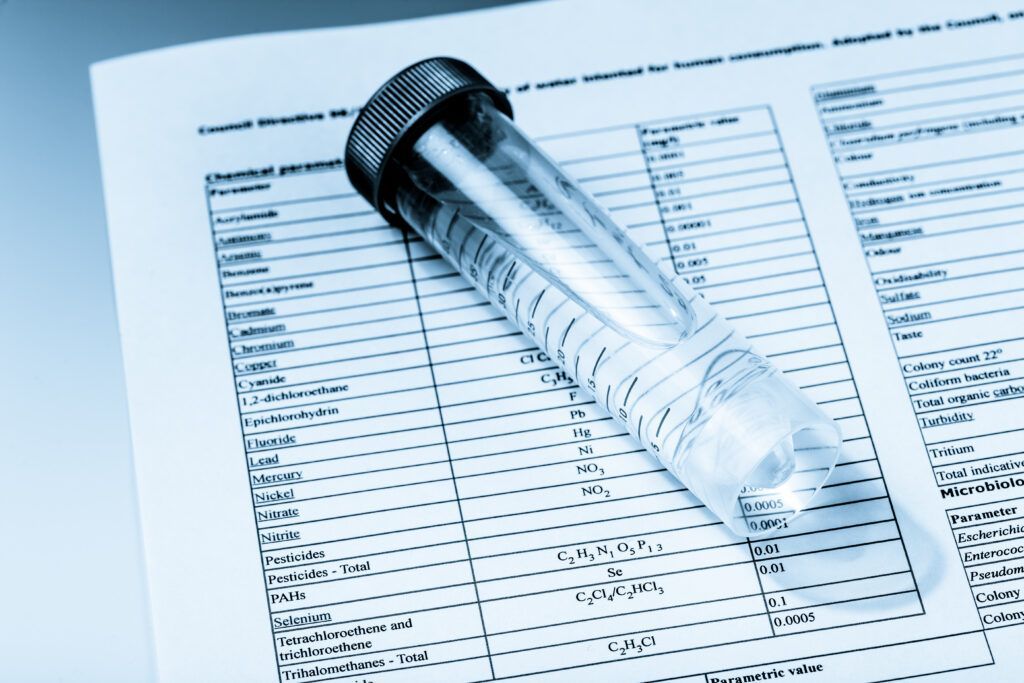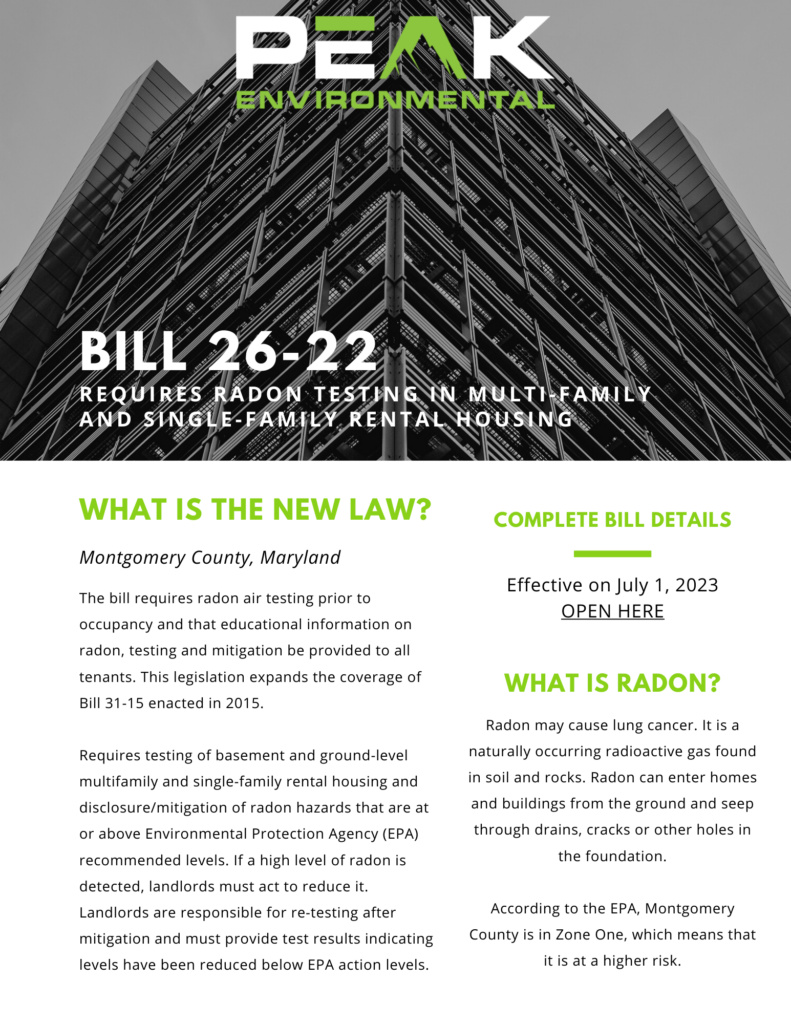Understanding Maryland Water Testing Requirements

Introduction:
Water is an essential resource for our daily lives, and it’s crucial to ensure that the water we consume is safe and free from contaminants. In Maryland, both well water and city water sources can be susceptible to various contaminants that may pose health risks. This blog post, brought to you by Peak Environmental, a leading water testing company in Maryland, aims to shed light on the most common contaminants found in Maryland’s water supply. Additionally, we will explore the water testing requirements in the state to help you understand the importance of regular water testing.
Common Contaminants in Maryland Water Supply:
Bacteria and Viruses:
Both well water and city water can be susceptible to bacterial and viral contamination. Harmful microorganisms such as E. coli, coliform bacteria, and viruses like norovirus and rotavirus can enter the water supply through sewage overflows, animal waste, or inadequate water treatment.
Lead:
Lead can leach into drinking water from older plumbing systems, lead-based pipes, solder, or fixtures. Long-term exposure to lead in drinking water can lead to severe health issues, especially for children, including developmental delays, lower IQ, and damage to the nervous system.
Nitrate:
Nitrate contamination often occurs in rural areas where agricultural practices involve the use of fertilizers. High levels of nitrate in drinking water can be harmful, particularly for infants and pregnant women, as it can interfere with the oxygen-carrying capacity of the blood.
Arsenic:
Arsenic is a naturally occurring element found in rocks and soil. In some areas of Maryland, groundwater may contain elevated levels of arsenic. Long-term exposure to high levels of arsenic in drinking water has been linked to various health problems, including skin issues, cardiovascular disease, and certain cancers.
Chlorine and Disinfection Byproducts (DBPs):
While chlorine is added to water as a disinfectant to kill harmful bacteria, it can react with organic matter and form disinfection byproducts (DBPs), such as trihalomethanes (THMs) and haloacetic acids (HAAs). Prolonged exposure to high levels of DBPs has been associated with increased risks of cancer and reproductive issues.
Maryland Water Testing Requirements:
The Maryland Department of the Environment (MDE) has established water testing requirements to ensure the safety and quality of drinking water. These regulations apply to both private well owners and public water systems. The specific testing requirements vary depending on the water source and the presence of certain contaminants. Here are some key testing requirements:
Well Water Testing:
Private well owners in Maryland are responsible for regularly testing their water quality. The MDE recommends testing for bacteria, nitrates, and nitrites at least once a year. Additional testing for contaminants like lead, arsenic, and volatile organic compounds (VOCs) may also be necessary depending on the well’s location and specific concerns.
City Water Testing:
Public water systems in Maryland must comply with federal regulations, including the Safe Drinking Water Act. These systems are regularly monitored and tested by the water utilities to ensure compliance with the drinking water standards set by the Environmental Protection Agency (EPA). However, homeowners may still opt for additional water testing for specific contaminants of concern.
Conclusion:
Regular water testing is vital to safeguarding your health and ensuring the purity of your drinking water. In Maryland, where both well water and city water can be prone to various contaminants, it’s essential to stay informed about common water contaminants and comply with the state’s water testing requirements. By partnering with trusted professionals like Peak Environmental, you can take proactive steps to identify and address potential water quality issues, ensuring a safe and healthy water supply for you and your family.
Remember, knowledge is the first step toward protecting your health, and regular water testing is the key to peace of mind.
Disclaimer: This blog post is intended for informational purposes only and does not constitute professional advice. Please consult with a water testing specialist or your local authorities for specific guidance regarding water testing requirements and addressing water quality issues in your area.
Disclaimer: The information on this website and blog is for general informational purposes only and is not professional advice. We make no guarantees of accuracy or completeness. We disclaim all liability for errors, omissions, or reliance on this content. Always consult a qualified professional for specific guidance.
Search Blog
Recent Posts



